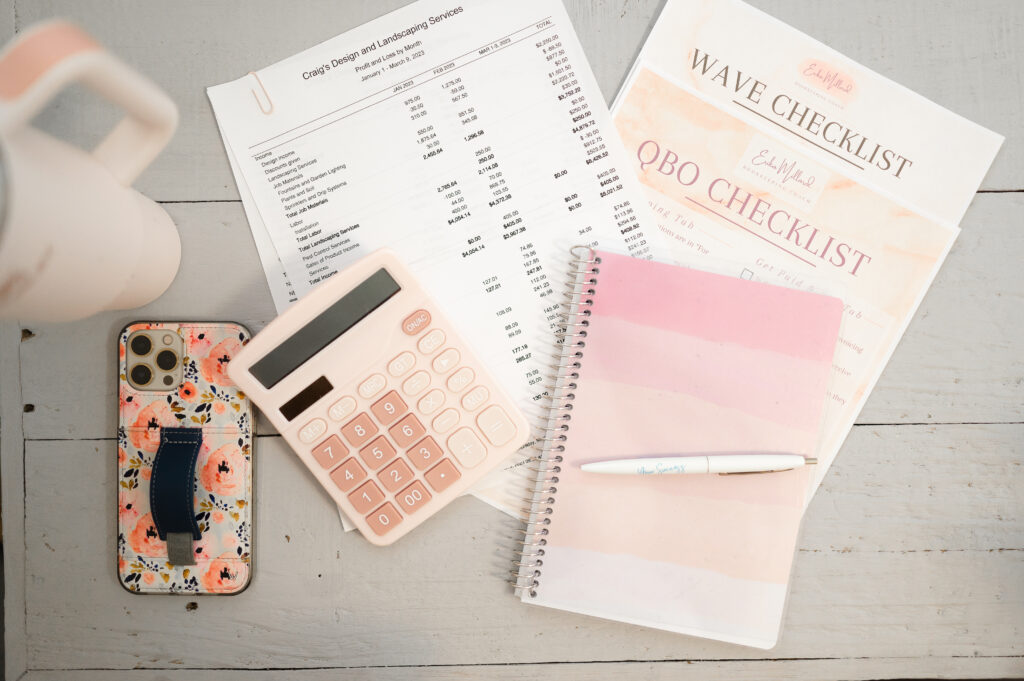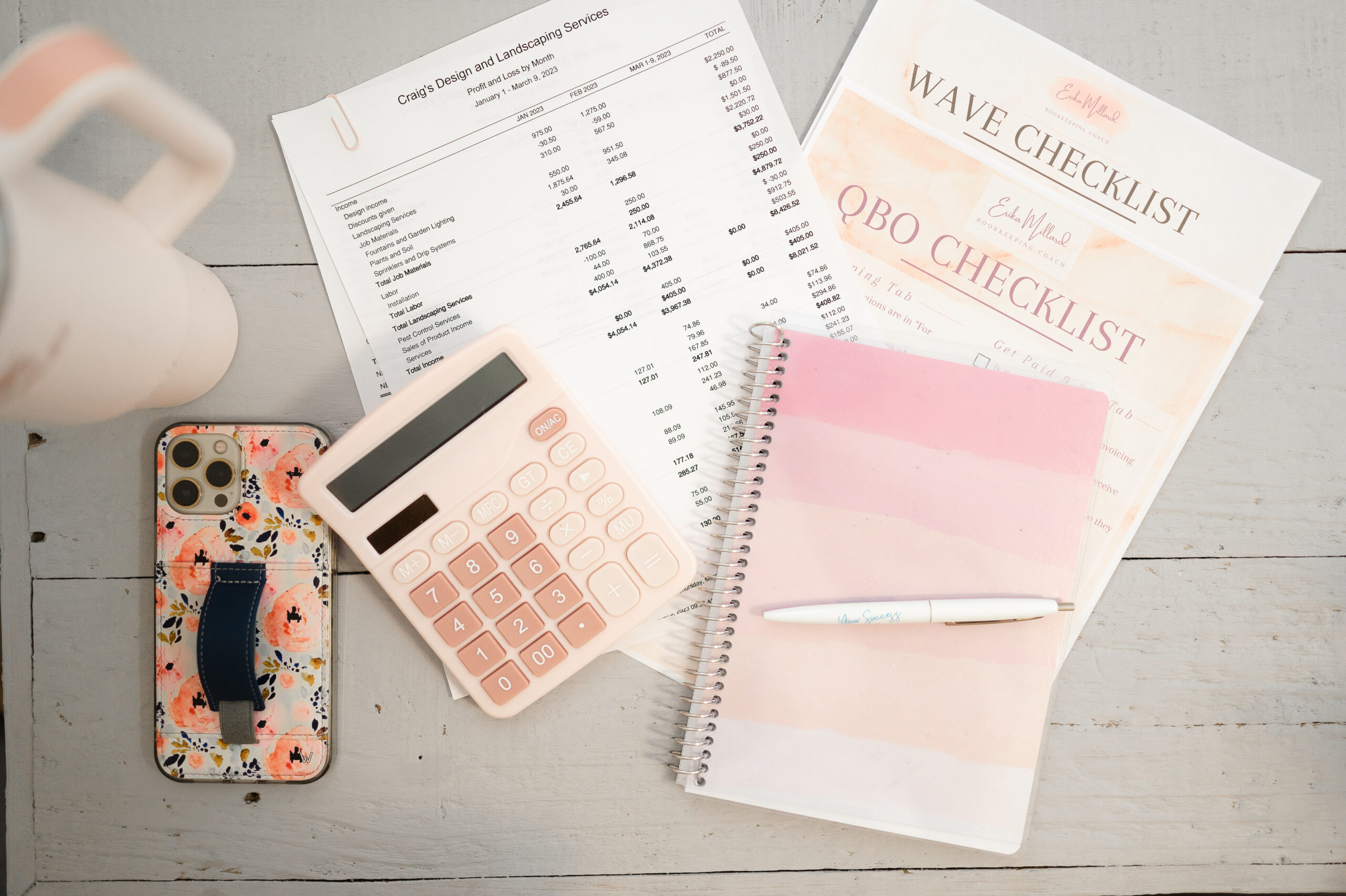
Has the word budget ever made you feel like you had to be on a financial diet? If that describes you then keep reading as we dive in to everything you need to know about budgeting for business.
Let’s start with the very basics of the topic just in case you feel a little unsure about it. A budget is just simply an estimate of income and expenses for a set period of time. It is before you’ve actually spent the money and it’s a prediction of what you think is going to happen in the future. We’ll talk about why we need a budget and why this is so important.
Who needs a budget?
Honestly if you’re a business owner, you need a budget. and That is because it really helps you in so many ways. It will help you set limits and expectations for yourself around your spending habits in your business. This helps a few different types of people actually. If you are someone that easily gets caught in shiny object syndrome, I know in the business world, I can so easily fall into this trap business and so sometimes it’s hard to prioritize.
So that is one reason that a budget can really help you is to help you prioritize that spending. But I’ve found it can also help you if you are someone that is scared to spend money in your business. If you’re scared to invest back into the business, if you’ve wondered, well how can I afford this or how much can I afford of something?
A budget can help you with that too because it’s going to help you predict – what is my income, what are my expenses, and how do I know what is coming next in business? That is another reason that a budget can be really helpful.
Where do I keep this budget?
The most simple answer that I found is in a spreadsheet. Now if you have an accounting platform, you can choose to upload your budget into that platform and then it will give you capabilities to run reports so that you can see the budget versus actual comparisons. But I found that most of my clients actually like to have it separate just so that you can remember the budget is just a prediction of what I think is going to happen.
But the numbers in my accounting software is what has actually happened. So sometimes it helps you kind of keep straight what those sets of numbers are because otherwise it can start to get a little bit confusing.
Where do you even start with creating your budget?
This might be something an unexpected answer. And that is actually to complete your bookkeeping for the current year. That’s because it really won’t help you very much if you aren’t using real numbers. If you don’t have some kind of history to help inform your future spending habits and decisions. That’s why we want to have our bookkeeping completed before we really jump in to the actual prediction part. If you need some help with that, check out my website, erikamillard.com for all the different options and ways that I can help you get caught up with your bookkeeping.
But that truly is the first step. If you’re brand brand new to business and you don’t really have historical data, that’s okay. You can still follow these next steps.
The first step is to gather a list of your expenses.
I typically recommend you make a recurrent a list of all the recurring expenses in your business.
This will help you one, know if you need to keep all those expenses. But two, it will just help you and keep you straight of when certain things draft out of your bank account and all of that kind of stuff. So that is an important step. And then any of those one time charges as well. Things like if you are going to buy equipment or if you’re going to do a new website, some of those one time larger expenses, just kind of know that those were either common or not common for the prior and upcoming year.
You also want to create a list of hopes and dreams of all the things that you want to invest in in your business.
The thing to keep in mind about a budget is it’s flexible. It’s not set in stone. I change mine pretty often actually with things that come up with things that I want to invest in that maybe I wasn’t it wasn’t a pain point a few months ago, but it really is now.
Why is a budget is really important?
It really helps you give some of those guardrails that you might need. And then another step is just to celebrate the wins. You know, I think it’s so easy to look at all of the things that we still need to do in business that still aren’t quite right. But you can start to celebrate those small victories.
Even times where you said, nope, I looked at my budget and I really can’t afford that right now. And you said no to something that could be a win. It could also be a win that, I feel like it is time to save for this specific course that I really want to be a part of. And so I’m going to plan for the next three months. I’m going to be saving for it so that now I can spend that money and feel really good about that decision. That could be a win too depending on what type of person that you are.
Here’s an example from one of my clients.
One example of this that I saw as a win for my client is that she wanted to hire a virtual assistant, but she really wasn’t sure if she could afford it. What we put together together was this. I asked her wouldn’t make you feel better if you had three months worth of what you would pay this person in a savings account before you ever hire her. Just so that you can feel confident that if something crazy happened, if you had a few bad months in business that you could still pay that person. And she said, yes, absolutely.
So that is the plan that we came up with is to set, we set a number. Really those numbers are just a lot
of times based on your comfort. So we set three months worth. And so it was going to take her about three months to save that three months worth of what she would pay a virtual assistant.
So, she started putting that money in a savings account and saving it over time so that then after the three months she could feel like she is ready to hire this person. She could know she has the extra money in savings. And so she can feel a little more confident about that decision.
Is this something that will work for you?
Now, not every time do we need that. But a lot of times it is just that comfort and that flexibility of having the cash ready to make this decision. She could have gone back and said, now I have this lump sum of cash. Is this still the right decision? She could have totally changed her mind if there was something else that was really more of a pain point.
But in this case, she just had that extra comfort and that was what was really important to her to give her a piece of mind in that hiring decision. To be able to have the extra money to be able to hire this person, she had to think through, are there some expenses that I need to cut? Are there some other investments that I don’t need to make yet? Are there some other services that I need to go sell? How many more of those packages do I need to sell it to cover that extra amount to be putting into saving?
That’s what I want you to imagine is imagine if you knew and had a strategic plan for exactly how to make those goals become a reality. Those are the kinds of wins that I want to see for you as well.
That’s why I’m so excited to announce that I have now created my mini course.
Get Comfy With Budgeting, a mini course on creating sales goals and a business budget. It’s going to walk you through all of these steps that we just talked about in a lot of detail.
You’re going to walk away with a downloadable spreadsheet where you’ll see samples of these types of things that we just talked about. Plus, you’ll have templates so that you can go create this custom for your business as well.
You can go to my website, erikamillard.com/budget and learn all about it. I am so excited. It’s actually it’s a mini course because it’s pretty short. It’s not a lot of fluff. We get straight to the point and straight to the pieces that will really help you move forward in business and making those smart decisions. This is the perfect time of year to jump into that mini-course.
Listen to this episode!
